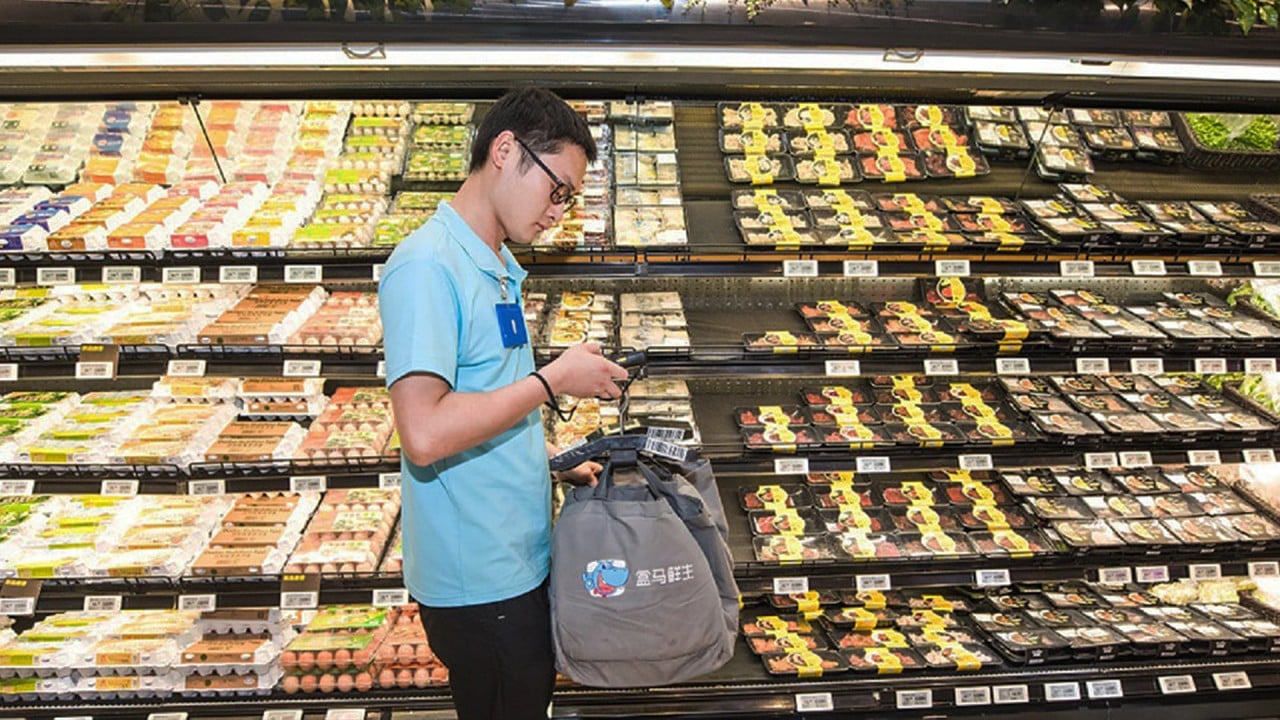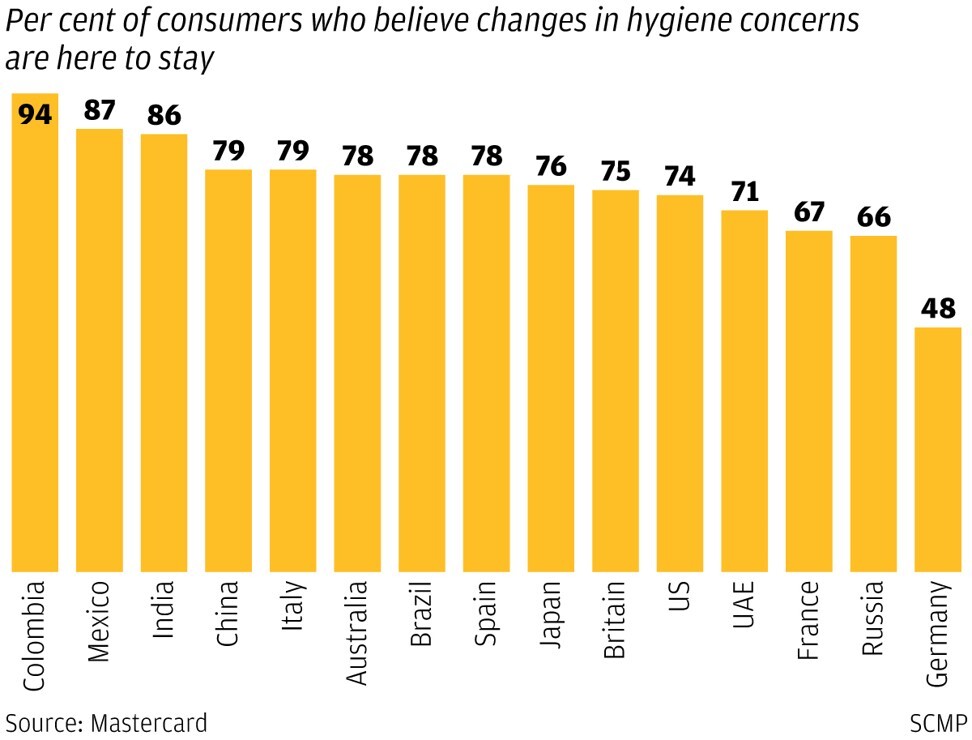
Coronavirus accelerates shift to online shopping as consumers fear contracting the disease from handling banknotes
- Shift to touch-free transactions and e-commerce is partly driven by consumers’ pressing concern over hygiene, says Mastercard
- Online grocery sales in Hong Kong rise 73 per cent in the first quarter
The deadly and highly contagious coronavirus pandemic is speeding up consumers’ preference for contactless and digital payments as hygiene concerns about handling banknotes become a top priority for consumers in Asia-Pacific, according to Mastercard.
Studies by market researcher Nielsen and global consultancy Bain & Co also show that e-commerce is one of the few winners amid the world’s worst recession triggered by an unprecedented economic shutdown and massive lockdowns across the globe as a way to stem the spread of the disease.
In Asia-Pacific, save for Japan and South Korea, eight other markets polled by Mastercard found that more than half of consumers consistently said they plan to use cash less often, led by 69 per cent of Australians, and 67 per cent of Singaporeans.
“Our shift to digital commerce is here to stay as people embrace the benefits of safety, security and convenience,” said Sandeep Malhotra, executive vice-president for products and innovation in Asia-Pacific at Mastercard. “Consumers now want on-demand products and services – whether it’s food delivery, groceries, fitness courses, telemedicine, conferencing, learning or entertainment. “

01:37
E-commerce companies in China offer temporary jobs to thousands amid coronavirus outbreak
He added that such demand and expectations will continue to drive e-commerce even after Covid-19 subsides.
Mastercard’s study was conducted in April via online interviews with 10,000 consumers in Australia, China, Hong Kong, Japan, Malaysia, Philippines, Singapore, South Korea, Taiwan and Thailand.
The shift to touch-free transactions is partly driven by consumers’ pressing concern over hygiene, cited by an overwhelming majority of Australians, Indians, Japanese and Chinese as a top concern, in a related survey by Mastercard in April and May. The study polled 6,750 consumers across 15 countries including those in Europe, the Americas, and the Middle East.
In February, monetary authorities in mainland China destroyed banknotes collected by hospitals, wet markets and bus operators to ensure safety of cash transactions at a time when the coronavirus outbreak was at its peak in China.
Nielsen also found that safety has become a recurring theme among consumers in the developed Asian markets of Hong Kong, South Korea, Japan and Taiwan.

03:45
Beijing’s malls still empty after coronavirus lockdown lifted
“‘Better safe than sorry’ is a strong theme when it comes to consumers’ lifestyle post-Covid,” said Andrea Borelli, managing director of Nielsen Hong Kong and Macau. “Demand for more precautions remains top of mind. Its influences go beyond masks and sanitisers. People search for ways to protect their health and their families.”
In Japan, for example, online sales were up in April with Rakuten, the country’s largest e-commerce company, recording a 58 per cent rise in sales.
For grocery items, online channels also reigned supreme with sales in Hong Kong surging 73 per cent in the first quarter from a year ago. Taiwan saw a 40 per cent year on year increase in April, while in South Korea sales rose 15 per cent year on year in May.
“The increase in online sales reflects not just an increase in the penetration of online for grocery shopping but also and more interestingly a significant increase in the size of the basket,” Borelli said. “For example, in Hong Kong, in the first three months of 2020 the average repertoire of the online grocery purchase increased by 63 per cent compared to 2019, indicating that consumers are now buying many more items online.”

In mainland China, Bain found that online channels registered a 19 per cent growth in the first quarter from a year ago, while offline sales dropped by 13 per cent.
“The pandemic has … accelerated the shift to online channels,” said Bruno Lannes, partner at Bain. “Consumers quarantined at home because of the Covid-19 pandemic had no choice but to buy online, with many opting to continue even after stores opened.”
In 2019, e-commerce grew by 35.2 per cent in China as consumers cited convenience for the shift to online retailing, according to Bain.


